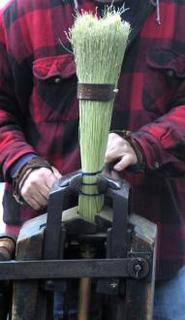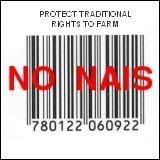HUSBANDRY

THE WORD "HUSBANDRY" is the name of a connection. In its original sense, it is the name of the work of a domestic man, a man who has accepted a bondage to the household. To husband is to use with care, to keep, to save, to make last, to conserve. Old usage tells us that there is a husbandry also of the land, of the soil, of the domestic plants and animals -- obviously because of the importance of these things to the household. And there have been times, one of which is now, when some people have tried to practice a proper human husbandry of the nondomestic creatures, in recognition of the dependence of our households and domestic life upon the wild world. Husbandry is the name of all the practices that sustain life by connecting us conservingly to our places and our world; it is the art of keeping tied all the strands in the living network that sustains us.
An intention to replace husbandry with science was made explicit in the renaming of disciplines in the colleges of agriculture. "Soil husbandry" became "soil science," and "animal husbandry" became "animal science." This change is worth lingering over because of what it tells us about our susceptibility to poppycock. Purporting to increase the sophistication of the humble art of farming, this change in fact brutally oversimplifies it.
"Soil science," as practiced by soil scientists, and even more as it has been handed down to farmers, has tended to treat the soil as a lifeless matrix in which "soil chemistry" takes place and "nutrients" are "made available." And this, in turn, has made farming increasingly shallow -- literally so -- in its understanding of the soil. The modern farm is understood as a surface on which various mechanical operations are performed, and to which various chemicals are applied. The undersurface reality of organisms and roots is mostly ignored.
This change is worth lingering over because of what it tells us about our susceptibility to poppycock.
An intention to replace husbandry with science was made explicit in the renaming of disciplines in the colleges of agriculture. "Soil husbandry" became "soil science," and "animal husbandry" became "animal science." This change is worth lingering over because of what it tells us about our susceptibility to poppycock. Purporting to increase the sophistication of the humble art of farming, this change in fact brutally oversimplifies it.
"Soil science," as practiced by soil scientists, and even more as it has been handed down to farmers, has tended to treat the soil as a lifeless matrix in which "soil chemistry" takes place and "nutrients" are "made available." And this, in turn, has made farming increasingly shallow -- literally so -- in its understanding of the soil. The modern farm is understood as a surface on which various mechanical operations are performed, and to which various chemicals are applied. The undersurface reality of organisms and roots is mostly ignored.
This change is worth lingering over because of what it tells us about our susceptibility to poppycock.
"Soil husbandry" is a different kind of study, involving a different kind of mind. Soil husbandry leads, in the words of Sir Albert Howard, to understanding "health in soil, plant, animal, and man as one great subject." We apply the word "health" only to living creatures, and to soil husbandry a healthy soil is a wilderness, mostly unstudied and unknown, but teemingly alive. The soil is at once a living community of creatures and their habitat. The farm's husband, its family, its crops and animals, all are members of the soil community; all belong to the character and identity of the place. To rate the farm family merely as "labor" and its domestic plants and animals merely as "production" is thus an oversimplification, both radical and destructive.
~ an excerpt form the work of Wendell Berry
If you didn’t happen to get the opportunity read and enjoy the article Renewing Husbandry at Orin publication recommended by Herrick Kimball, I’d offer a hearty second recommendation for a thorough and thoughtful read. It lent it’s self well to my thoughts on husbandry and biblical agrarian applications. So much so that at the risk of being the copycat and posting from the same source as it will allow me reference for future articulations of concepts in the renaming of disciplines, roles and usage of words. Thank you again Herrick for the source reference.
If you’re an apt swimmer for deeper thought I’d encourage you to check out The Rural Missourian’s latest diatribe on Biblical Agrarianism. I will reserve commenting on it, as it requires more than a cursorily single going over, something to look forward to as I add another log to the hearth in coming winter days.
For the one who asked, yes the fireplace is from our home, it was the ‘first conflagration’ of what we hope to be many (as the Lord sees fit) to enjoy. I will end here without much further to say as it is late and work comes early…( to be continued)
If you’re an apt swimmer for deeper thought I’d encourage you to check out The Rural Missourian’s latest diatribe on Biblical Agrarianism. I will reserve commenting on it, as it requires more than a cursorily single going over, something to look forward to as I add another log to the hearth in coming winter days.
For the one who asked, yes the fireplace is from our home, it was the ‘first conflagration’ of what we hope to be many (as the Lord sees fit) to enjoy. I will end here without much further to say as it is late and work comes early…( to be continued)


0 Comments:
Post a Comment
<< Home